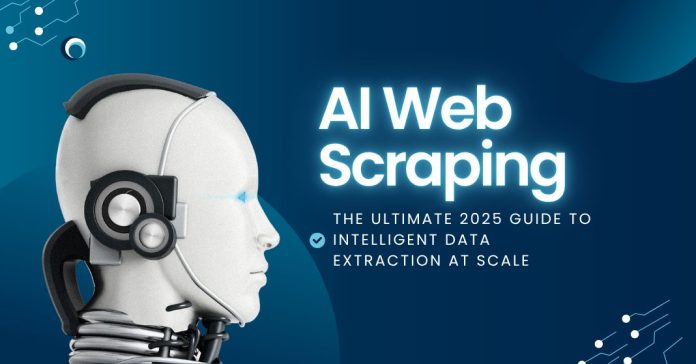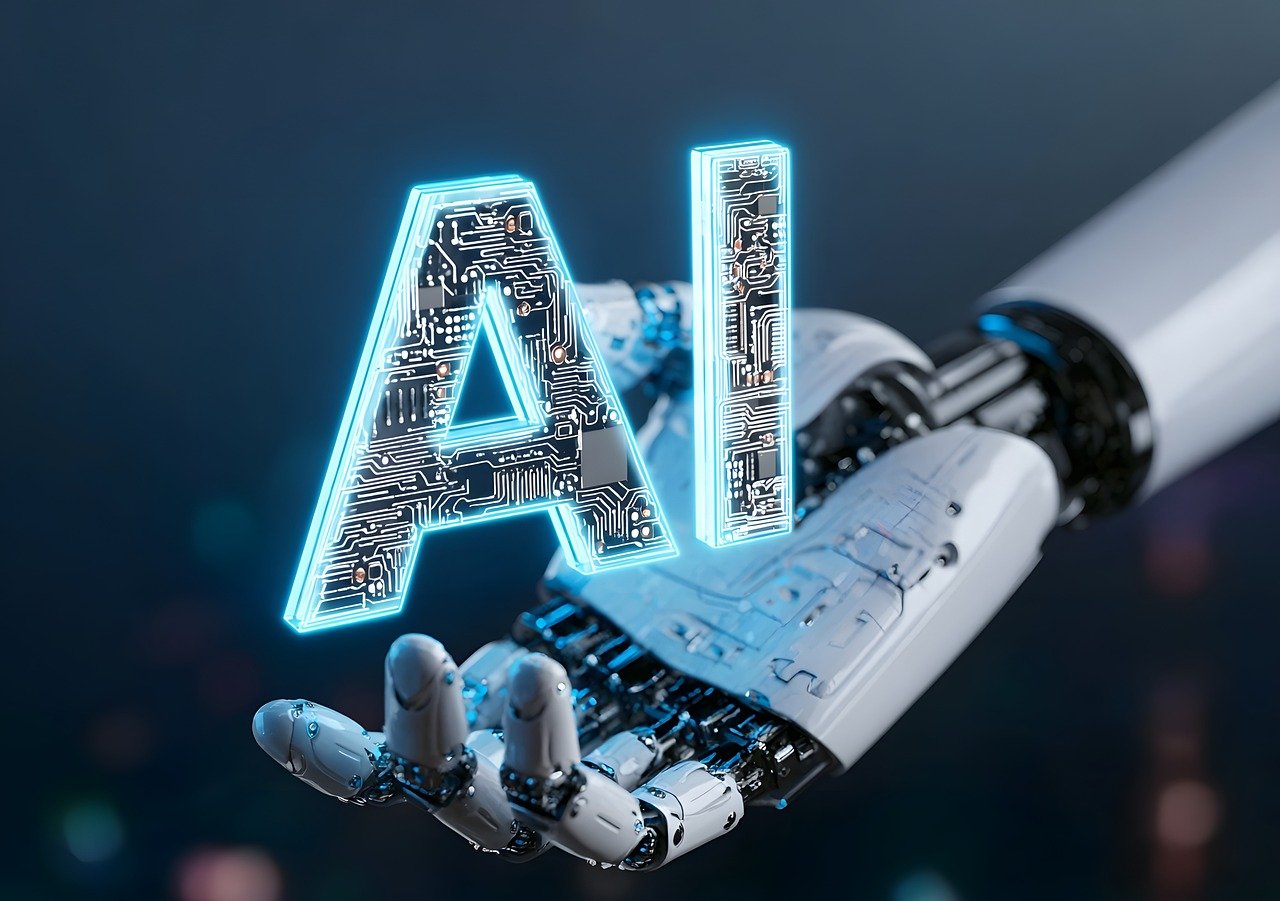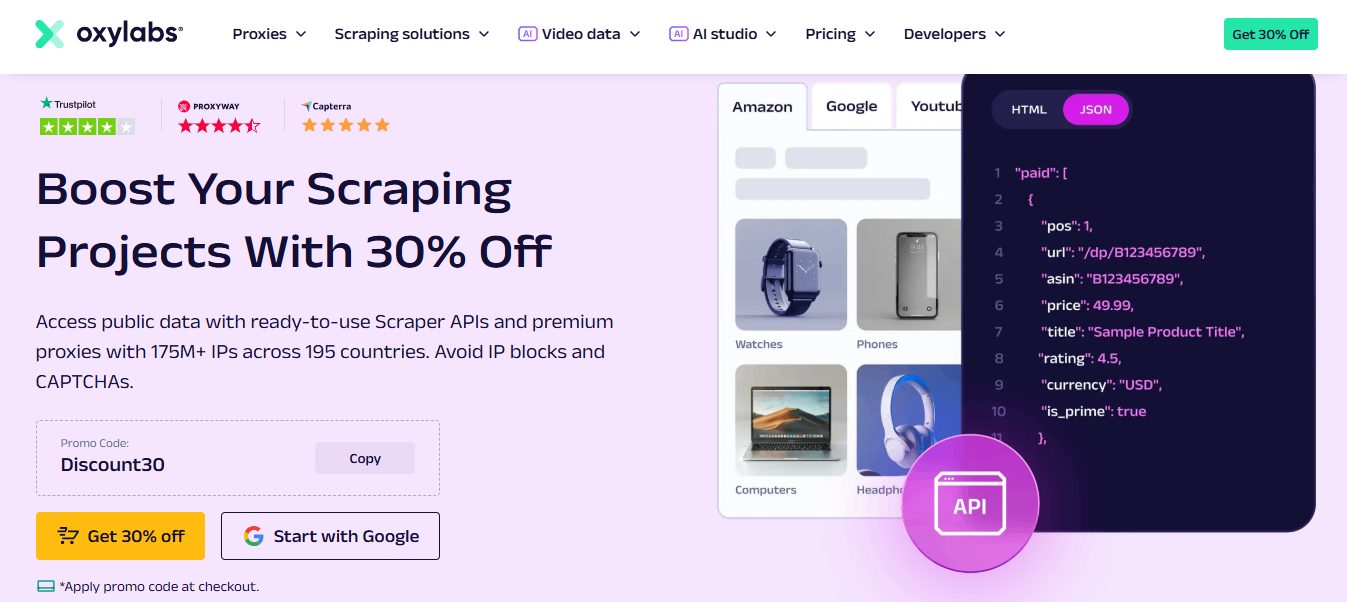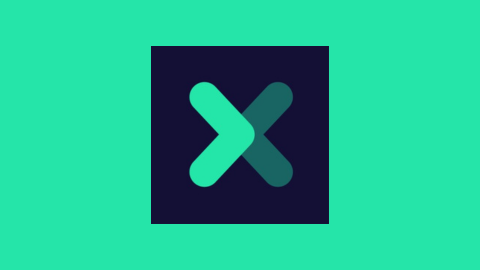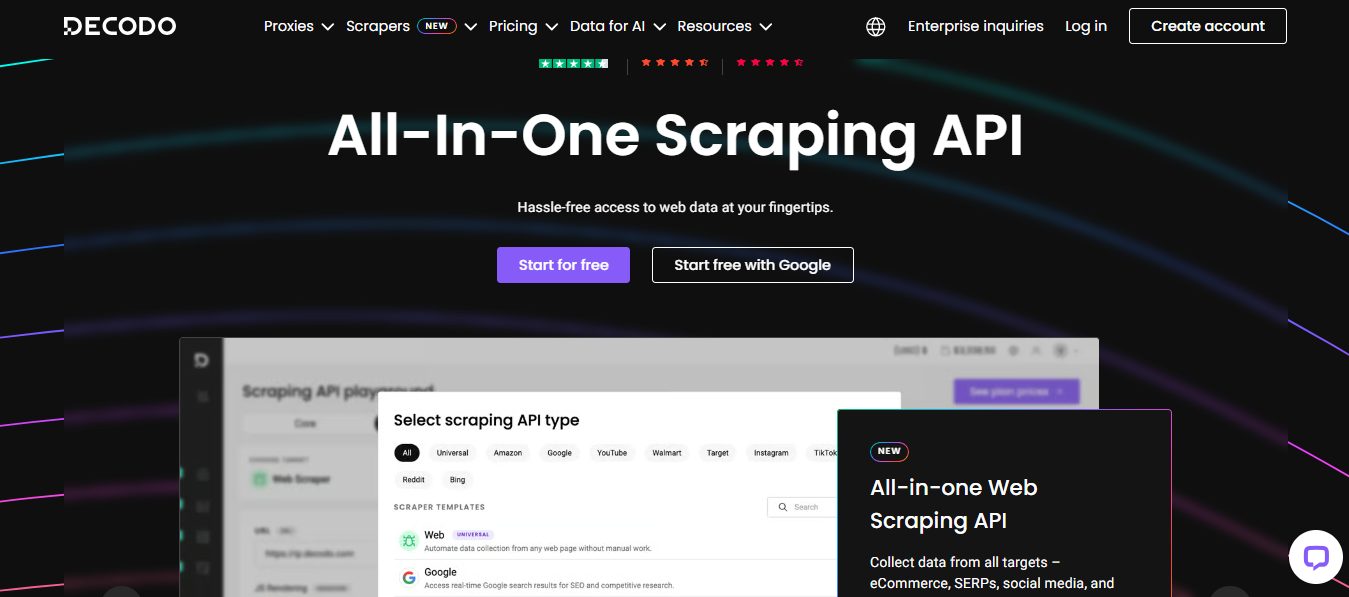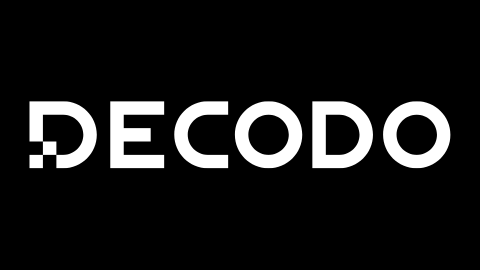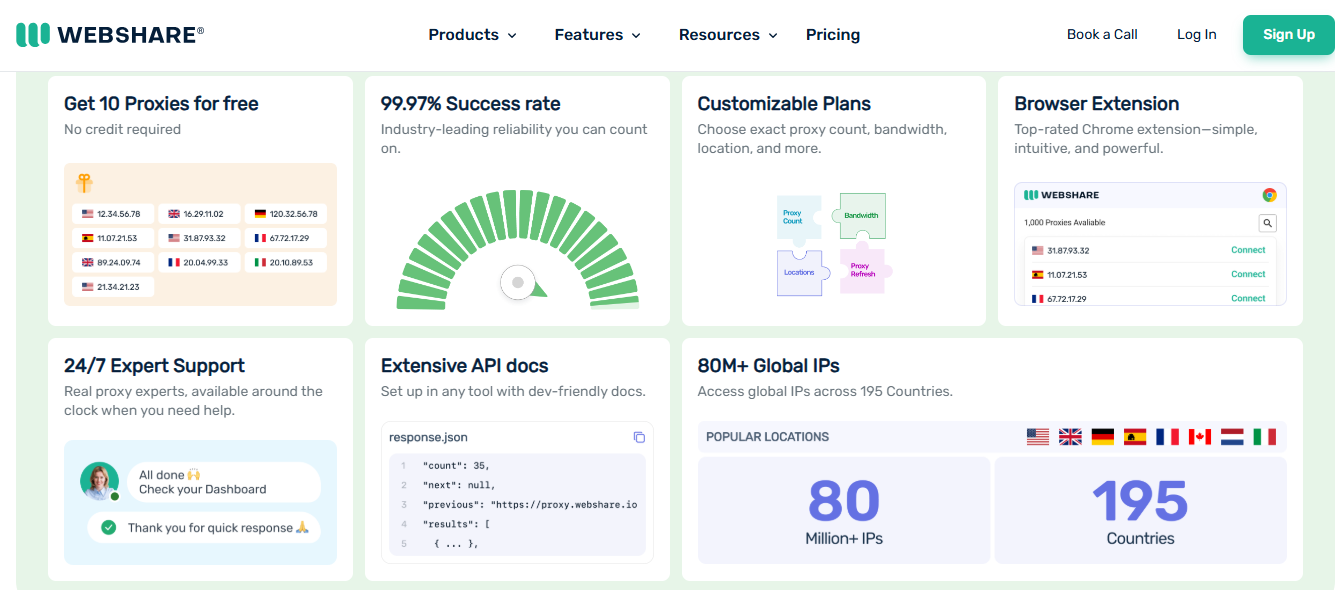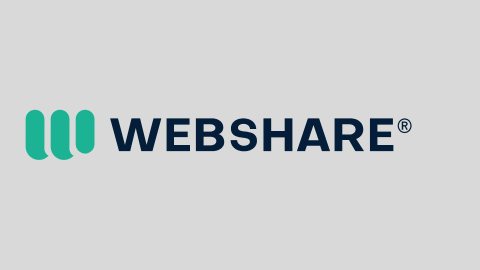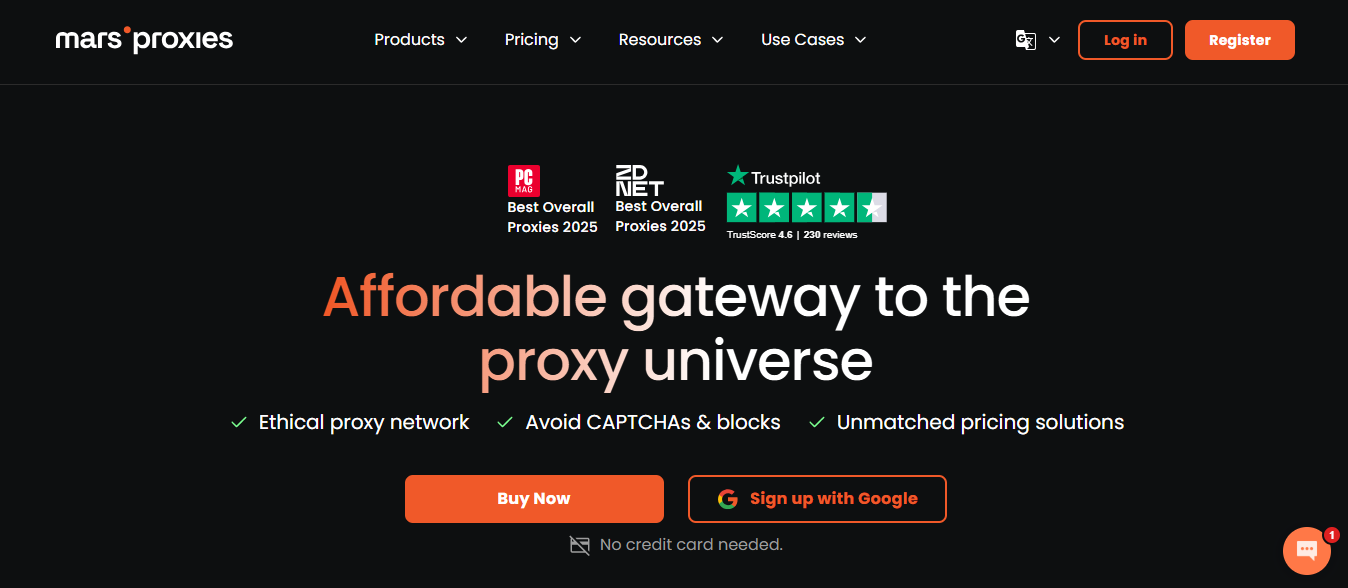Want to find out what AI web scraping is all about, and how to effectively implement it? Read on to find out…
In 2026, web scraping is no longer just about pulling HTML from websites using requests and selectors.
The era of AI web scraping has arrived—where machine learning, natural language processing (NLP), computer vision, and intelligent proxy rotation combine to automate accurate, scalable, human-like data extraction.
With the explosion of unstructured data across the internet—product listings, news articles, social media, job postings, reviews, financial content—businesses and developers need smart, adaptive, and self-correcting scraping systems. That’s what AI web scraping delivers.
Whether you’re scraping for market intelligence, training LLMs, monitoring brand mentions, or building search engines, this guide will teach you:
- What AI web scraping is
- How it works
- Where proxies fit into it
- How to build one
- Who the top providers are
- Sample tools, use cases, and best practices
Now, let me answer the fundamental question: what is AI web scraping?
Table of Contents
🧠 What Is AI Web Scraping?
AI web scraping is the process of using artificial intelligence—especially machine learning, NLP, and computer vision—to automate and optimize the extraction of web data.
Unlike traditional scraping, which relies on static HTML selectors, AI web scrapers can:
- Understand webpage layouts dynamically
- Adapt when page structures change
- Extract content with higher accuracy
- Detect and bypass anti-bot mechanisms
- Filter and structure unstructured data intelligently
This makes AI web scraping faster, more scalable, and more resilient.
How AI Enhances Web Scraping:
| AI Capability | Impact on Scraping |
|---|---|
| Computer Vision | Identifies visual elements like product images or prices even when HTML is messy |
| Natural Language Processing (NLP) | Extracts sentiment, topics, and intent from reviews or comments |
| Machine Learning | Learns how to adapt to layout changes or optimize extraction |
| Reinforcement Learning | Builds bots that navigate site flows dynamically (e.g., login, pagination) |
| Content Classification | Filters pages based on type (product, article, blog, etc.) |
🧩 What You Need To Build an AI-Powered Web Scraper
1. Proxy Network (Essential)
- Use residential or rotating IPs to avoid bans
- Geo-targeting enables local content extraction
- Tools: Oxylabs, Webshare, Decodo
2. Scraping Engine
- Puppeteer, Playwright, Selenium for browser automation
- BeautifulSoup, lxml, or Cheerio for lightweight parsing
3. AI Modules
- GPT or spaCy for NLP
- TensorFlow or PyTorch for image-based scraping
- Hugging Face Transformers for text classification
- Reinforcement agents for behavior-based scraping
4. Storage and Pipelines
- Send scraped data to PostgreSQL, MongoDB, or S3
- Use Airflow, Prefect, or Dagster for scheduling jobs
- Normalize outputs with AI-parsed fields
🌍 Use Cases for AI Web Scraping in 2026
| Industry | Use Case |
|---|---|
| E-Commerce | Price intelligence, product catalog building |
| Finance | Sentiment analysis from financial blogs |
| AI Model Training | Real-world language corpora from comments, news |
| SEO/Marketing | SERP tracking, competitor content analysis |
| Real Estate | Listing aggregation with image-based property classification |
| Travel | Hotel review scraping + NLP analysis |
| Media Monitoring | Article summarization, brand mentions |
Let’s begin with our top picks for powering your AI web scraping stack.
🚀 Editor’s Choice: Top 3 Providers for AI Web Scraping (2026)
Before building your scraper, you need reliable infrastructure—APIs, proxies, and automation tools—to make large-scale, intelligent data collection possible.
Here are the top 3 Editor’s Choice brands powering the new generation of AI scrapers:
🥇 1. Oxylabs – Best Enterprise-Grade AI Web Scraping Platform
Proxy Types: Residential, Mobile, Datacenter, ISP
Key Product: AI-Enhanced Web Scraper API
Ideal For: Enterprise crawling, product tracking, machine learning pipelines
Pricing: Starts from $0.95/1K requests
Trial: Unlimited trial for scraping tools (up to 2K results)
Why It’s #1:
Oxylabs leads the market in AI-integrated scraping APIs, offering tools that not only extract content from complex, dynamic websites but also auto-parse layouts, adapt to structural changes using machine learning, and normalize data using AI models.
Their Web Scraper API supports:
- Dynamic rendering (JavaScript-heavy websites)
- Real-time data extraction from e-commerce, news, SERPs
- Automatic structure recognition using AI parsing
- In-built IP rotation, CAPTCHA bypass, and retry logic
Perfect For:
- Training AI with real-world data (news, comments, listings)
- Competitive pricing intelligence
- Enterprise-scale knowledge graphs
- NLP sentiment pipelines
⚠️ Please note: Oxylabs’ YouTube scraper does not offer any discounts.
🥈 2. Decodo (Formerly Smartproxy) – Best All-in-One Proxy + Scraper Toolkit
Proxy Types: Residential, ISP, Mobile, Datacenter and Site Unblocker
Key Product: All-in-one Web Scraping API
Ideal For: Non-coders, marketers, RPA users
Pricing: From $0.08/ 1K req
Trial: 7-day free trial with 1K requests
Why It’s Great:
Decodo combines high-quality proxies, easy-to-use scraping tools, and advanced features for teams who want smart scraping without writing thousands of lines of code. Their Web Scraping API allows you to:
- Set real-time or on-demand scraping tasks
- Automatically rotate IPs to avoid restrictions or CAPTCHAs
- Get real-time data from any website for AI training
- Structure HTML data with a free AI Parser
Their solutions are ideal for teams that need speed and flexibility without the risks of getting blocked or restricted.
Perfect For:
- Agencies, marketers, and BI analysts
- Building intelligent data pipelines with minimal dev overhead
- Training ML models with scraped datasets
🥉 3. Webshare – Best Budget-Friendly Proxy Platform for Custom AI Scrapers
Proxy Types: Datacenter, Rotating Residential
Key Product: API-ready proxies with dashboard integration
Ideal For: Small-scale YouTube scraping, bot integration, SEO projects
Pricing: Starts at $2.99/month
Trial: Free tier with generous limits
Why It’s Great:
While Webshare doesn’t offer a native AI scraping engine, it’s the go-to proxy provider for developers building custom AI-based web scrapers. With high-speed, low-cost proxy access and intuitive controls, it’s ideal for coding intelligent scrapers using:
- Python + BeautifulSoup + ML models
- Puppeteer, Playwright, or Selenium with AI routing
- GPT/NLP text classifiers for content filtering
Its integration with scraping libraries is seamless, and geo-targeting helps build region-aware AI datasets.
Perfect For:
- Small AI teams doing NLP scraping
- Open-source projects and prototypes
- Developer-first scraping scripts with low latency proxies
🛒 Other Top Proxy & Scraping Infrastructure Providers
After our Editor’s Choice picks, here are other notable services supporting AI scraping setups:
1. MarsProxies – Best for Speed-Sensitive AI Bots
Specialty: High-speed proxies for scraping bots
Ideal For: Bots needing instant page loads (news, stock updates)
Pricing: From $15/month
MarsProxies offer performance-optimized proxies that integrate well with AI-driven trading bots, sentiment crawlers, and rapid aggregation tasks.
2. IPRoyal – Best for Pay-As-You-Go Residential Scraping
Specialty: Affordable residential proxy bandwidth
Ideal For: Academic AI scraping, freelance projects
Pricing: From $0.80/GB
IPRoyal is ideal if you’re on a budget or doing short-term AI scraping work. Flexible, fast, and works well with AI pipelines.
3. Nodemaven – Best for Developer-Centric API Projects
Specialty: Dev-ready scraping APIs + proxy tools
Ideal For: SaaS builders, data engineers, ML ops teams
Pricing: From $12/month
Great for creating custom AI data platforms, Nodemaven supports API-first workflows and developer-friendly endpoints.
4. ProxyEmpire – Best for Geo-Focused AI Training Sets
Specialty: Global proxy pool with city-level targeting
Ideal For: Scraping content by region (local news, cultural trends)
Pricing: From $10/GB
Build regional LLM datasets or multilingual corpora using ProxyEmpire’s precise geo-targeting.
🔧 Sample AI Scraper: Python + NLP + Proxies
🧪 Bonus: Build an AI Web Scraper With Decodo’s Scraper API
Decodo allows scraping via simple API POST requests:
⚠️ Legal & Ethical Considerations
AI web scraping comes with ethical and legal responsibilities:
- ✅ Scrape only public information
- ❌ Never extract user passwords, private content, or bypass paywalls
- ✅ Rotate IPs to reduce server strain
- ✅ Attribute sources when required (for academic use)
- ⚠️ Check Terms of Service per domain
When training AI models, ensure data anonymization and compliance with GDPR, CCPA, and data privacy laws.
🏁 Final Thoughts: The Future of AI Web Scraping
AI web scraping isn’t a trend—it’s the new standard. As websites become more dynamic and anti-bot systems more sophisticated, the only way to gather valuable data reliably is with smart, adaptive scraping infrastructure.
To recap:
- Use Oxylabs for enterprise AI scraping at scale
- Use Webshare to power your custom scraper affordably
- Use Decodo to mix APIs, proxies, and UI-based scraping
- Add tools like MarsProxies, IPRoyal, and Nodemaven for edge-specific performance
INTERESTING POSTS
- Smart Security Systems and Motion Sensors: Debunking Common Myths and Misconceptions
- Best YouTube Scraper (2026): Content, Data & Video Intelligence Extraction
- Google Scraper: How to Ethically and Efficiently Extract Search Data
- The Ultimate Guide to Proxies for Legitimate Web Scraping
- Best Web Scraper APIs: Unlocking the Web’s Data
About the Author:
John Raymond is a cybersecurity content writer, with over 5 years of experience in the technology industry. He is passionate about staying up-to-date with the latest trends and developments in the field of cybersecurity, and is an avid researcher and writer. He has written numerous articles on topics of cybersecurity, privacy, and digital security, and is committed to providing valuable and helpful information to the public.


